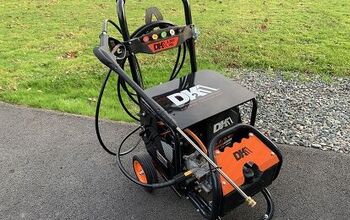TTAC News Round-up: Infamous GM Engineer Speaks, You Only Get One With Dinner, and Hydrogen's Hedged Bet

The man in the middle of GM’s faulty ignition switch has finally spoken, and the word “mistake” came up at least twice.
That, does anyone have the number for Google, GM and Honda may join forces, and take a cab … after the break!
Former GM engineer says ‘mistakes were made’ in faulty switch
The engineer at the center of a massive recall, hundreds of lawsuits and 124 deaths linked to a faulty ignition switch that could turn off said Friday in videotaped testimony that he “made mistakes in development of that part,” according to Reuters ( via Automotive News).
Ray DeGiorgio worked for GM for 23 years and helped develop a faulty ignition switch that could turn off and disable safety systems in millions of cars. Five years later, when officials recognized the part’s failure, DeGiorgio’s signed off on a change to the part — but not the part number — to address the problem. Lawyers have said that not changing the part number is evidence of a cover-up by GM.
DeGiorgio hasn’t spoken much publicly (he once told the New York Times in his driveway that he “ didn’t lie, cheat or steal”) and his deposition will be key in the first of many lawsuits against GM.
Fiat Chrysler Automobiles: We haven’t forgotten about self-driving cars, guys
Fiat Chrysler Automobiles’ head of safety said Friday that the automaker is committed to developing autonomous drive technology, despite being seemingly dead last behind Ford and General Motors, who’ve announced several self-driving advancements.
Our engineers are actively exploring autonomous-vehicle technology and its implications. For strategic reasons, we don’t discuss future product plans. However, we currently offer several automated driver-assist features, such as our sensor-fusion forward collision warning systems. These activities help demonstrate our commitment to advancing the development of autonomous-vehicle technology.
Or, “Does anyone have the number for Google?”
Michael Dahl’s statement is related to a 52-week low for FCA stock, which has been battered recently because of a lawsuit and investors’ worries that the company can’t keep up with others in autonomous technology.
Honda, GM may consider joint fuel cell plant
Honda and General Motors may jointly build a fuel cell plant to cut costs and make available sooner alternative fuel cell cars, according to Reuters ( via Automotive News).
The incredibly small market for hydrogen-powered cars has meant automakers such as Toyota, BMW, Daimler and Nissan have hesitated in developing a fuel cell plant on their own. Hydrogen-powered cars are most popular in Japan — where GM is not — and have a very small presence in California, mostly due to lack of infrastructure to fuel them.
Feds want states to lower BAC to .05
The National Transportation Safety Board said it wants states to lower their blood-alcohol content limits from .08 to .05 to help cut back on fatal crashes where alcohol is involved.
According to the safety administration, the risk of a fatal crash has more than doubled by the time a person becomes legally drunk, and lowering the BAC threshold could reduce the number of people killed on roadways.
The proposal is part of a larger push by the agency to reduce the number of impaired drivers on the roads.
While all states use the .08 BAC as the legal limit many states vary in enforcement, threshold for enhancers, repeat offenders and adoption of an interlock device — which we’ve talked about a lot here.
According to NBC, when Australia dropped its BAC from .08 to .05, provinces reported a 5 to 18 percent drop in fatal crashes.
Automakers join in safety pact
Eighteen automakers — every major automaker that operates in the U.S. — joined a voluntary safety pact Friday to focus on better vehicle safety, improved access to early warning data and increased cybersecurity in cars, according to Reuters.
The broad consensus was made after another busy year for vehicle recalls and fines, and an increasing focus by federal regulators on car safety and automakers’ responsibility for their cars.
Critics of the pact said the National Highway Traffic Safety Administration should have held their discussions in public with input from outsiders.
“From seatbelts to catalytic converters to airbags to fuel economy standards, automakers have proven time and time again that they do nothing voluntarily,” Democratic Sens. Edward Markey and Richard Blumenthal said in a statement.
[Images: Dodge, GM]

More by Aaron Cole
Latest Car Reviews
Read moreLatest Product Reviews
Read moreRecent Comments
- Redapple2 Love the wheels
- Redapple2 Good luck to them. They used to make great cars. 510. 240Z, Sentra SE-R. Maxima. Frontier.
- Joe65688619 Under Ghosn they went through the same short-term bottom-line thinking that GM did in the 80s/90s, and they have not recovered say, to their heyday in the 50s and 60s in terms of market share and innovation. Poor design decisions (a CVT in their front-wheel drive "4-Door Sports Car", model overlap in a poorly performing segment (they never needed the Altima AND the Maxima...what they needed was one vehicle with different drivetrain, including hybrid, to compete with the Accord/Camry, and decontenting their vehicles: My 2012 QX56 (I know, not a Nissan, but the same holds for the Armada) had power rear windows in the cargo area that could vent, a glass hatch on the back door that could be opened separate from the whole liftgate (in such a tall vehicle, kinda essential if you have it in a garage and want to load the trunk without having to open the garage door to make room for the lift gate), a nice driver's side folding armrest, and a few other quality-of-life details absent from my 2018 QX80. In a competitive market this attention to detai is can be the differentiator that sell cars. Now they are caught in the middle of the market, competing more with Hyundai and Kia and selling discounted vehicles near the same price points, but losing money on them. They invested also invested a lot in niche platforms. The Leaf was one of the first full EVs, but never really evolved. They misjudged the market - luxury EVs are selling, small budget models not so much. Variable compression engines offering little in terms of real-world power or tech, let a lot of complexity that is leading to higher failure rates. Aside from the Z and GT-R (low volume models), not much forced induction (whether your a fan or not, look at what Honda did with the CR-V and Acura RDX - same chassis, slap a turbo on it, make it nicer inside, and now you can sell it as a semi-premium brand with higher markup). That said, I do believe they retain the technical and engineering capability to do far better. About time management realized they need to make smarter investments and understand their markets better.
- Kwik_Shift_Pro4X Off-road fluff on vehicles that should not be off road needs to die.
- Kwik_Shift_Pro4X Saw this posted on social media; “Just bought a 2023 Tundra with the 14" screen. Let my son borrow it for the afternoon, he connected his phone to listen to his iTunes.The next day my insurance company raised my rates and added my son to my policy. The email said that a private company showed that my son drove the vehicle. He already had his own vehicle that he was insuring.My insurance company demanded he give all his insurance info and some private info for proof. He declined for privacy reasons and my insurance cancelled my policy.These new vehicles with their tech are on condition that we give up our privacy to enter their world. It's not worth it people.”



































Comments
Join the conversation
The DUI "industry" is still huge, but hurting. But do you really think they don't have lobbyists in DC? Without looking it up, DUI arrests and DUI related deaths and injuries have to be at an all time low. It's the states that want/need more DUI money, along with private prisons, all wanting the Feds to look like the bad guy And it's all straight-up "business" for everyone involved in DUIs. My handyman got a DUI and they kicked him out of the drunk tank the next morning, free on his own recognizance. Yeah, no bail! They must have ran his credit score. A no account, complete deadbeat. A liability in the DUI game. 15 old misdemeanor warrants at the time too. $100,000+ worth! Driving on a suspended's, failure's to appear, etc. They instantly kick him out, every time he's arrested and he never shows up for court dates. With nothing to lose, they can't make any money off of him. With lowered DUI rates, the industry has to be missing out on billions of dollars yearly or monthly, and are not helped by increased marijuana use and prescribed opiates/anti-depression meds. Yes the Fed want to make us all safer, but have to also want more DUI money landing on poor, broke and bankrupt states, with more crashes landing an easier DUI conviction
In other hydrogen car news: http://insideevs.com/toyota-to-selected-dealers-stop-delivering-mirai-there-is-no-where-to-refuel/